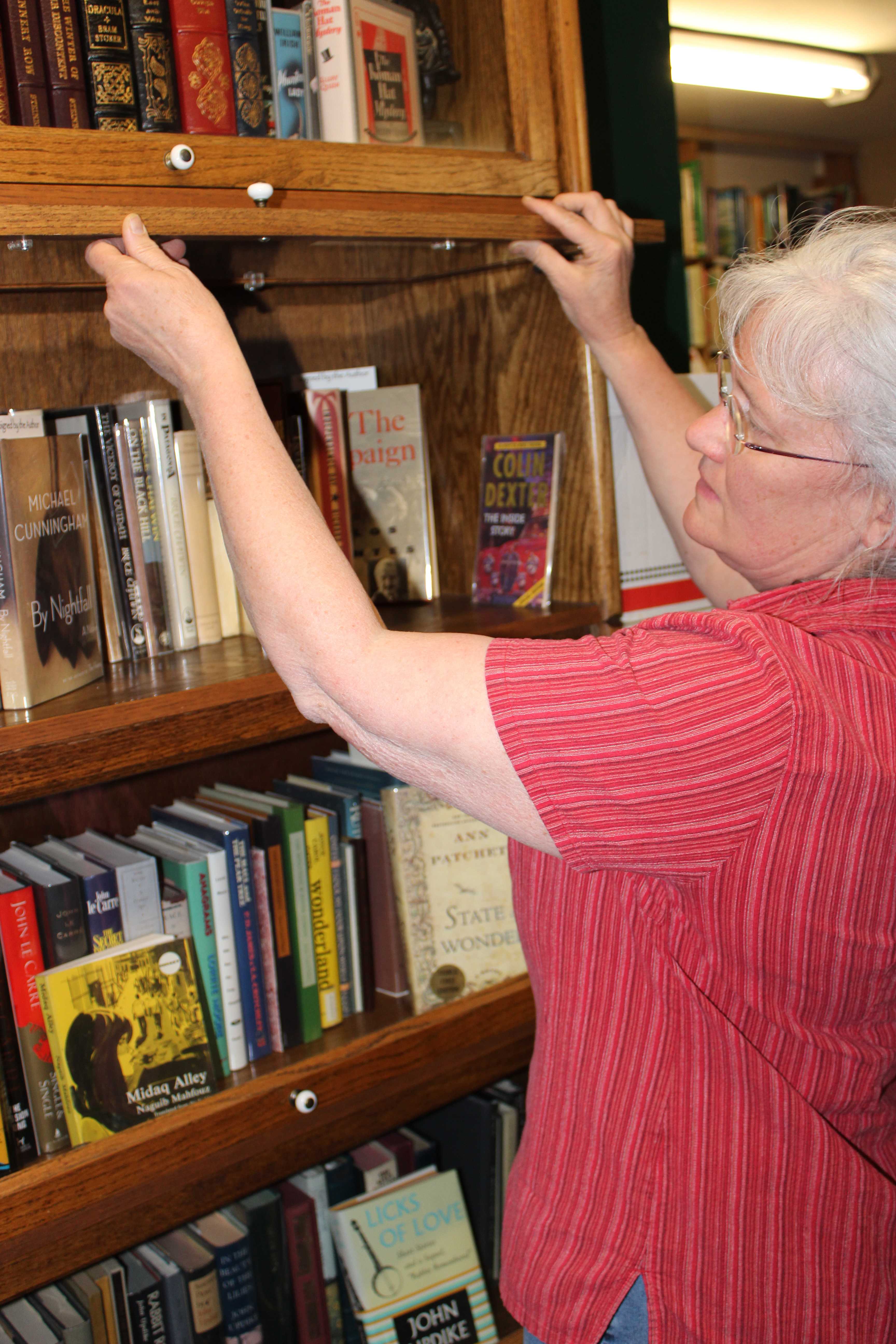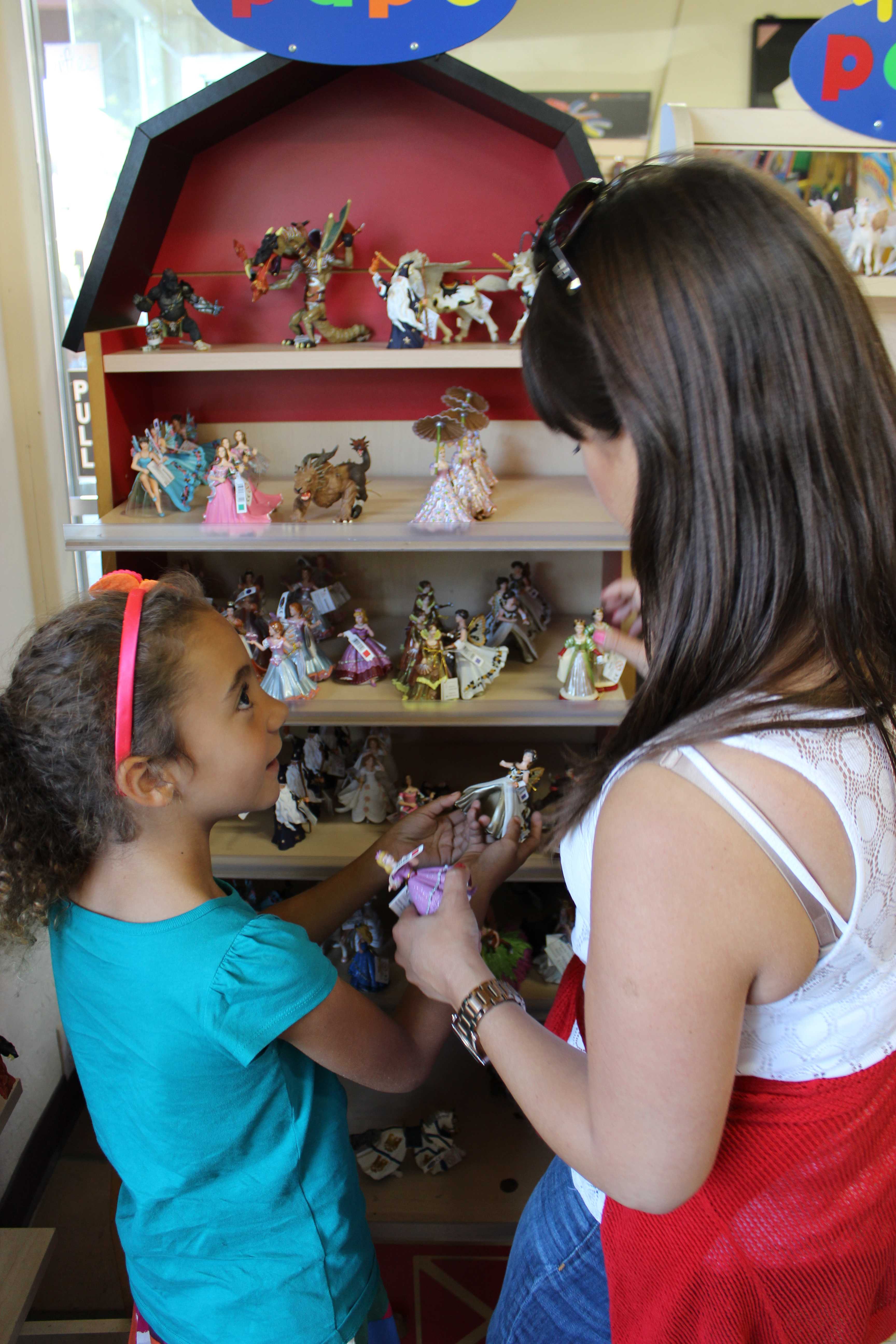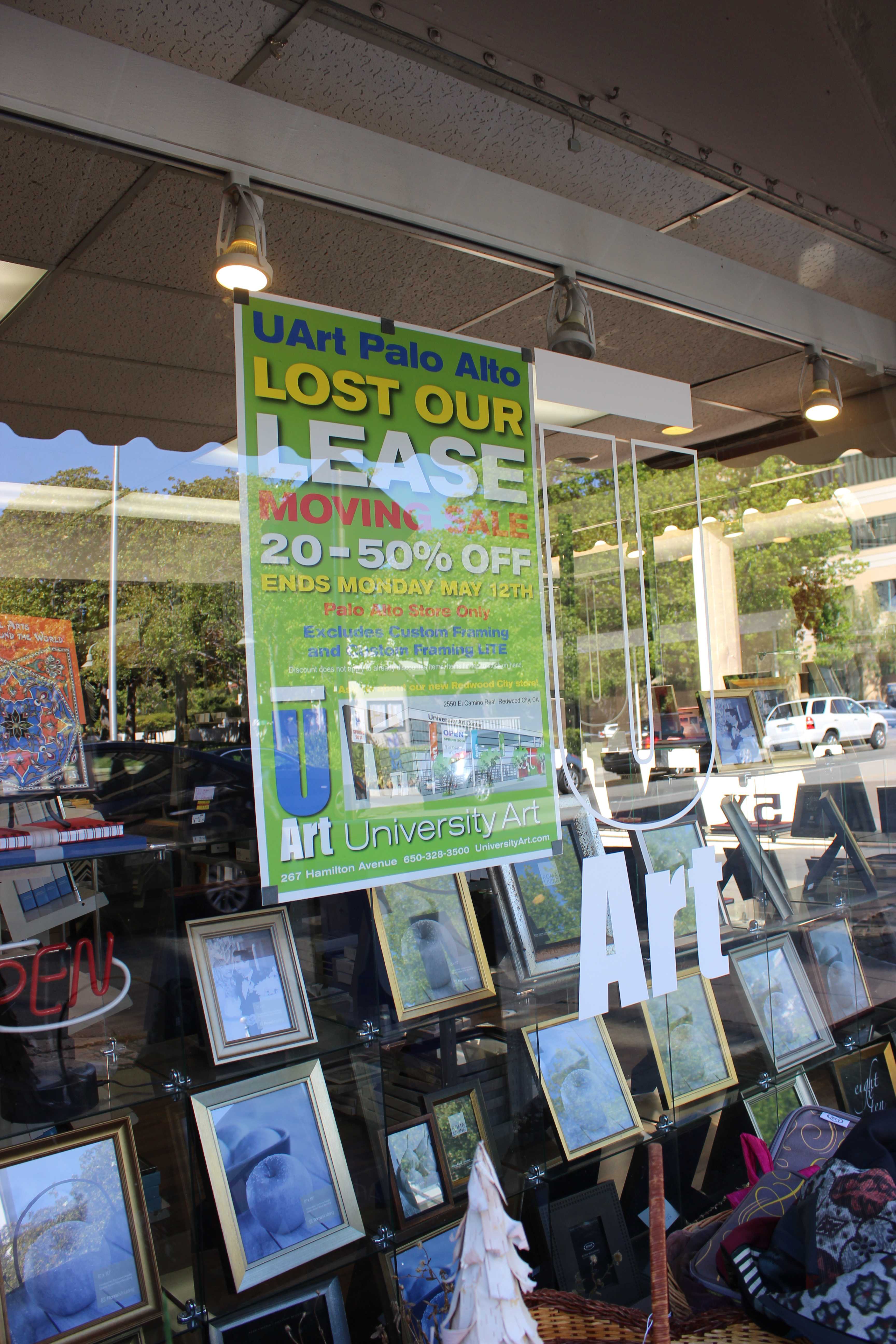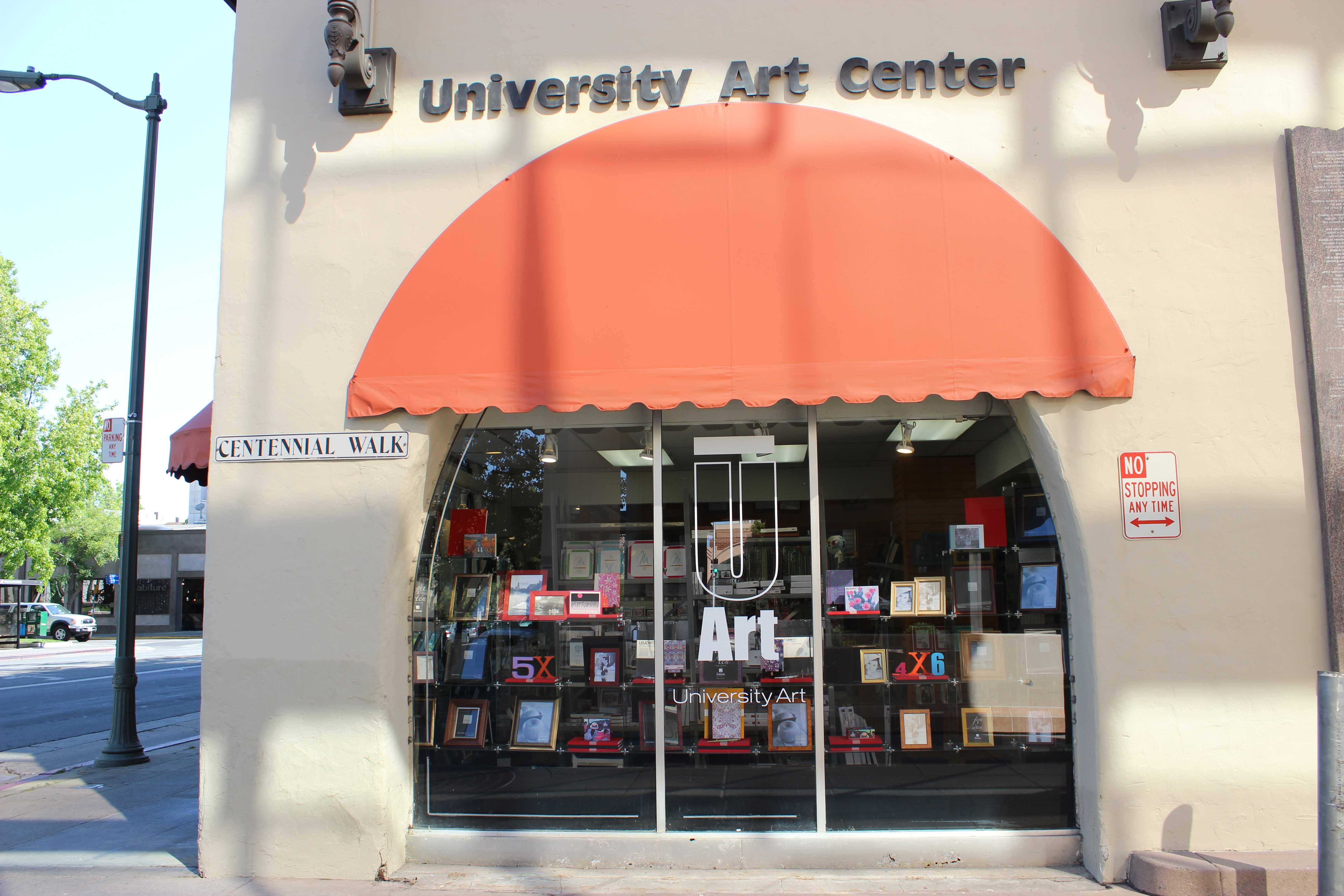For many years, Palo Alto has been home to a variety of unique shops and pit-stops, some of which have become decade-long institutions. Over time, these businesses have grown in popularity, drawing a diverse body of customers from all over the Palo Alto area and beyond. However, with the growth and expansion of Silicon Valley technology industries, small businesses are having difficulty finding space and funding. Questions have been raised as to whether Palo Alto offers sufficient protection to its small businesses against big business competition.
Thomas Fehrenbach, the economic development manager of the city of Palo Alto, stresses the importance of small businesses in the Palo Alto community. Contrary to the beliefs of several small businesses, Fehrenbach feels the city is doing all it can to support smaller companies.
“They [small businesses] are a part of what makes Palo Alto a special place and what keeps us sort of unique,” Fehrenbach says. “I think we have just as much of a focus on supporting the small local serving businesses as we do in attracting fortune 100 companies to the research park.”
To develop a more comprehensive understanding of the issue, we spoke with several Palo Alto institutions to get their take on the rising competition between small and big business.

Bell’s Books
536 Emerson St, Downtown Palo Alto
Established in 1935, Bell’s Books has provided new and used books to the Palo Alto and Stanford community for over 70 years. The shop boasts a 500-subject category collection of paperback and hardcover reads — old and new — proudly stating that it offers “something for everyone.” For decades, Bell’s Books has inhabited a nondescript location on Emerson Street in downtown Palo Alto, offering adventure behind its forest-green doors.
Faith Bell, the shop’s current owner, says the building was officially purchased by her father, Herbert Bell, in the 1950s. Although the shop has managed to maintain its integrity and traditional feel over the years, Bell admits the inventory and methods of marketing must change with the times in order to preserve business.
“I think that we have to shift our focus constantly,” Bell says. “With 350,000 volumes, it’s hard to shift rapidly … but we do try and respond to the interests of the community as they arise. One of the things we’ve done in recent years is that because all the new bookstores have gone from town, we’ve started carrying many more new books.”
Bell says that the high rent and changing competition make it difficult for small companies to stay in business for a long period of time.
“I have many friends who had small businesses in this town who are no longer here,” Bell says. “And the ones who are here have had to shift their product line tremendously in order to generate sufficient income to pay the rents that are here.”
Bell feels the price of rent in downtown Palo Alto does not do justice to the quality and sales reach of a business.
“They are unrealistic rents; they don’t reflect what a business can generate by the square footage, and sadly, the larger chain stores can generate that, or will take a loss to be in a prestigious area,” she says. “We’re seeing a lot of people driven out.”
Bell feels that with the influx of bigger, technology-focused businesses and franchises, the traditional culture of Palo Alto is becoming increasingly more removed from the unique small-town vibe it once had.
“The nature of the town has shifted radically from one of sometimes quirky and charming individuality to a very mass market, cookie cutter look,” Bell says. “If you go down University Avenue today there are very few independently owned businesses — pretty much everything down there is a chain at this point.”
In accordance with the opinions of other small companies, Bell feels the city isn’t as devoted to the preservation of its small businesses as it is to the support of larger companies.
“I don’t think that they are as focused on how to preserve what we have or encourage small ones coming in as they are in trying to help generate tax dollars for the city,” Bell says. “We really don’t get people coming around saying ‘What can we do for you? How can we make this work for you?’”
Bell says the expanding influence of stores such as Costco and online markets such as Amazon have negatively impacted business for Bell’s Books. Due to their larger size and presence, bigger businesses have greater access to discounts when purchasing from publishers.
“Where I might buy from a publishing house a book at 10 dollars, I’d have to pay six dollars for a book that I sold at 10 dollars, which is not a very good deal, but that’s how it is for new books,” she says. “But they [bigger companies] would be able to buy it for four dollars and sell it for eight dollars so they would actually sell it to the public for less than what I would pay the publisher for it. That’s the kind of discounts that quantity can demand, and it makes a huge difference.”
Despite rising competition from bigger companies, Bell’s Books has remained in its original location on Emerson Street for 75 years. Bell is proud of the diversity of her returning customers.
“We’re very blessed in our customer base,” Bell says. “We have remarkable people who shop here … The advantage of being in the book business is that people are really passionately excited about things. They’re here because they want to know more about what they care about, and that makes all the difference. We get to see people’s enthusiasm and it rubs off.”

Palo Alto Sport Shop & Toy World
526 Waverley St, Downtown Palo Alto
Since its establishment in 1930, Palo Alto Sport Shop & Toy World has grown to become one of Palo Alto’s oldest and most respected institutions. Over the past 84 years, the business has gathered an international body of customers, sold toys and sporting goods from quality brands, and maintained its reputation as a friendly, family-run company. It still lives in its original location on Waverley Street in downtown Palo Alto.
Unlike newer companies, Palo Alto Sport Shop & Toy World, according to general manager Eric Hagar, has not encountered significant difficulties as a result of the recent and growing influx of bigger technology companies.
“We’ve had a niche here for so long that we aren’t as buffeted by those things as others,” Hagar says.
Despite this, Hagar notes the existence of anti-small business sentiment in the Palo Alto government..
“I’m concerned with the anti-business attitude of the City of Palo Alto, the city government,” Hagar says. “The perspective of the business man in Palo Alto is that businesses exist in the Palo Alto government’s eyes as a source of money and a way to blame problems on business. We always feel that we are under attack in a way, from Palo Alto government.”
Hagar explains that rising real estate prices can cause complications for smaller businesses with fewer clientele and sales reach.
“Palo Alto seems to generate lots of small inconveniences toward business,” Hagar says. “I’ve noticed that there definitely are fewer locally owned retail businesses downtown. The price of real estate has driven out people.”
To keep sales at a profitable level, Palo Alto Sport Shop & Toy World tries to be adaptive to current trends when selecting its products.
“Our store is really flexible,” Hagar says. “When it first opened up as a retail space, it was all sporting goods, and sporting goods meant hunting and fishing too. Then … it expanded into toys, and as the definition of what people pursued as sports changed, we changed, so we opened up a big swim department … And our toy business always changes with the demand, so that’s how you do it. You just have to stay nimble and change with your customer base.”
Hagar hopes the small business community will hold strong, as it provides a number of services to Palo Alto residents.
“We have literally given hundreds and hundreds of Palo Alto students their first jobs,” he says. “We also support many local charity drives … Also, because we’re small and local, innovative vendors — people who create new products — come to us to test them out. We were one of the first people with rollerblades on the Peninsula when those were popular in the 80’s … You get to see lots of new things because we’re small and we can help smaller businesses.”

University Art
267 Hamilton Ave, Downtown Palo Alto
Established in 1964, University Art has developed into a self-proclaimed institution over the past 45 years, providing the Palo Alto art community with quality supplies and services such as custom canvas framing for paintings and photographs. However, despite its long-time respected status, the business has been forced to relocate to Redwood City due to high rent and diminished income.
Cornelia Pendleton, the Chief Financial Officer of University Art and the granddaughter of the shop’s original founders, explains that the business has expanded and contracted over the years, and since it will be moving from its Palo Alto location, the business will be reduced to three total locations in the Bay Area.
“We’ve lost all of the buildings that we were leasing due to either increased rents or they chose larger retail,” Pendleton says. “They were doing different things with the business, but we currently own all three of our buildings that we will be in when we move to Redwood City, and that will keep us going, hopefully.”
According to Charlie Affrunti, the vice president of University Art, the company purchased its current Palo Alto building in 2008 for a higher price than they intended.
“We knew it was inevitable that we’d move out of here, so we’ve been looking for a place for at least three years,” he says. “With what the rents are today and what the’re going to be, we just knew we wouldn’t survive here.”
Todd Ayers, the general manager of University Art, believes rent is the number one cause of business failure and relocation, as tech companies are more willing and able to pay a higher price.
“Rent is the predictor in why this is happening because office space, you know, those design people, those engineers are paying top dollar,” Ayers says. “They’ll pay more, so then the small retailer who can’t pay that is out.”
Pendleton feels that the city of Palo Alto tends to favor bigger technology companies at the expense of smaller private businesses.
“The city of Palo Alto wants to be recognized as a center of innovation, a center of creativity and start-ups, and it has always fostered that sort of creativity and development,” she says. “The small, independent business doesn’t have a large voice.”
Like Palo Alto Sport Shop & Toy World, University Art has changed and developed over the years to keep up with fluctuating trends and demands.
“We’ve always been strong with framing; we’ve always enjoyed that part of it, and we’re very well known for that,” Affrunti says. “We’ve found our niches as we’ve gone, and it’s cool because we’ve been changing with times.”
Affrunti hopes University Art will retain its dedicated clientele, despite the move to Redwood City.
“We’re just hoping that our customers follow us and that we can meet some new friends along the way too,” Affrunti says. “Keep our success going here.”



